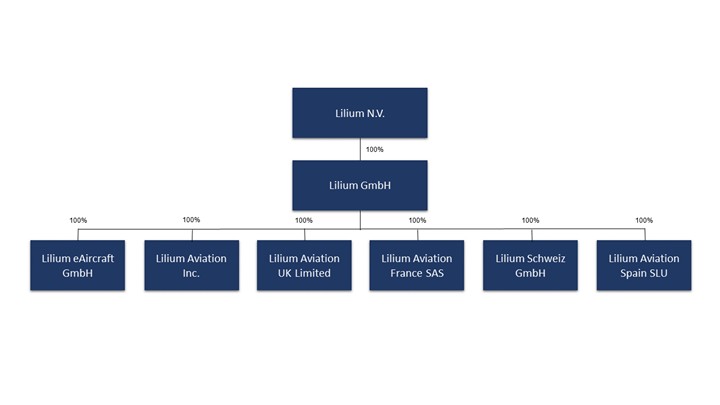There may be a shortage of trained pilots and qualified mechanics, which could reduce demand for our products and services and harm our business, and we may be unable to implement our growth plans.
Throughout the aviation industry, there is a shortage of trained pilots and qualified aircraft mechanics. Our ability to sell our products and services will depend, in part, on the ability of operators of the Lilium Jets to find, recruit and train pilots qualified to operate the Lilium Jet and mechanics qualified to perform the requisite maintenance activities, for which operators of our Lilium Jets will compete with airlines and other air mobility and transportation services companies, some of which will offer wages or benefit packages exceeding what operators of the Lilium Jets may offer. We intend to work with third parties to train pilots, mechanics and technicians in our proprietary jet operation and maintenance. However, if operators of the Lilium Jets are unable to hire, train and retain qualified pilots and mechanics, our business could be harmed, and we may be unable to implement our growth plans.
Our business may be adversely affected by labor and union activities.
Although none of our employees are currently represented by a labor union, it is common throughout the aircraft industry generally for many employees at aircraft companies to belong to a union, which can result in higher employee costs and increased risk of work stoppages. We may also directly and indirectly depend upon other companies with unionized work forces, such as parts suppliers and trucking and freight companies, and work stoppages or strikes organized by such unions could have a material adverse impact on our business, financial condition or operating results.
We face risks related to health epidemics, including the COVID-19 pandemic.
We face various risks related to public health issues, including epidemics, pandemics and other outbreaks (such as the COVID-19 pandemic). The impact of COVID-19 created significant volatility in the global economy and led to reduced economic activity as well as significant inflationary pressures. The COVID-19 pandemic disrupted the manufacturing, delivery and overall supply chain for manufacturers and suppliers and led to a global decrease in personal and business travel around the world.
We may experience an adverse impact to our business as a result of COVID-19’s global economic impact, including any recession that has occurred or may occur in the future. COVID-19 or other emergent public health issues could also affect the operations of our suppliers and business partners. COVID-19 resulted in, and a resurgence of COVID-19 or other emergent public health issues could in the future result in further, delays or disruptions in the supply chain of our components, parts and materials, which could delay the development and rollout of Vertiport networks and our commercial operations, and as a result, would have an adverse impact on our business, operating results and financial condition.
Additionally, difficult macroeconomic conditions, such as decreases in discretionary travel, per capita income and level of disposable income, increased and prolonged unemployment, or a decline in consumer confidence as a result of COVID-19 or other emergent public health issues, could have a material adverse effect on the demand for our services. Under difficult economic conditions, potential customers may seek to reduce spending by forgoing RAM services.
Failure of information security and privacy concerns could subject us to penalties, damage our reputation and brand and harm our business and results of operations.
We expect to face significant challenges with respect to information security and privacy, including the storage, transmission and sharing of confidential information. We will transmit and store confidential and private information of our employees, suppliers, customers and other third parties, such as personal information, including names, accounts, user IDs and passwords, and payment or transaction related information.
We are in the process of adopting strict information security policies and deploying advanced measures to implement the policies, including, among others, advanced encryption technologies. However, advances in technology, an increased level of sophistication of our services, an increased level of expertise of hackers, new discoveries in the field of cryptography or others can still result in a compromise or breach of the measures that we use. If we are unable to protect our systems, and hence the information stored in our systems, from unauthorized access, use, disclosure, disruption, modification or destruction, such problems or security breaches could cause a loss, give rise to our liabilities to the owners of confidential information or even subject us to fines and penalties. Additionally, complying with various laws and regulations could cause us to incur substantial costs or require that we change our business practices, including our data practices, in a manner adverse to our business.

